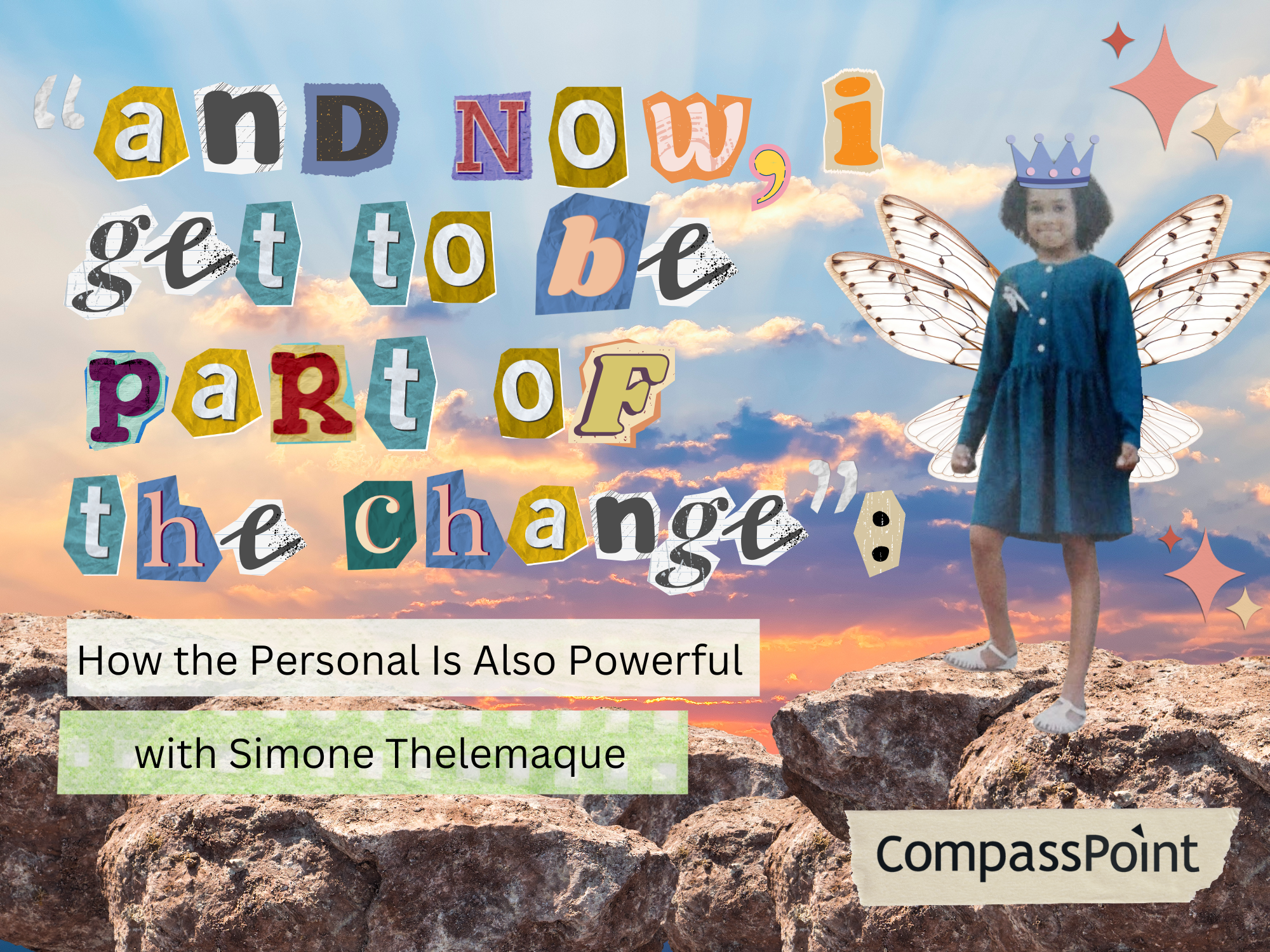“We are now faced with the fact that tomorrow is today. We are confronted with the fierce urgency of now. In this unfolding conundrum of life and history, there is such a thing as being too late. This is no time for apathy or complacency. This is a time for vigorous and positive action.” ― Martin Luther King, Jr.
Are you feeling the urgency of “now” — the need as an organization or individual to take a stand and align your actions towards your convictions? We have certainly felt the call rising at CompassPoint over the past two years to prioritize and center racial equity in our work, and it has only escalated in light of the political changes of the past six months on the national level. As a staff, we’ve been holding important conversations and have been grappling with some big questions as we define the organization we need to be for our community. Questions like: What does our community and staff need from us? Why this work? Why now? Below are some of the areas we're currently working on to move us closer to these answers. As a colleague or client that might be experiencing similar reactions and questions, we thought you might find it helpful to hear more about some of our explorations.
Where are we heading as an organization?
We are an organization driven by a desire to live out the full breadth of what we espouse — shared power, true diversity in leadership, organizational policies and systems designed with equity at their core — and a recognition that our community needs something new from us, namely to help grow leaders and organizations that actively facilitate liberation rather than inadvertently replicate oppressive systems. This is a shift that we are excited about and that has been in the works and deepening into our organizational bones over the last two years.
You may have witnessed part of this change last year when we introduced our adoption of Holacracy, an organizational management system that distributes leadership and authority throughout the organization and across roles. You also may have seen it in the shifting tenor and topics of our programming and communications towards a more explicit social and racial justice stance. While our work has been calling us in this direction for the past several years, we recognize that both our practice and the world is needing us to accelerate this change, and we have deepened our commitment to pursuing this in the coming year.
What does this mean?
Here are some of the areas we are focusing on to work towards this change:
- Refining our program approach and focus. When we adopted our initial theory of change five years ago, we affirmed an intention to place social equity at the center of our work. As we deepen this commitment, we are working to embed a racial justice stance in everything we do. You may have noticed some of our related programmatic changes like embedding discussions of race, power, and privilege into our workshops and developing new leadership programs focused on social justice organizations and their leaders. We’ve also taken steps to transform our staff through intentional shifts in our hiring processes. For a 40-year-old mainstream nonprofit like us, this process of change and transition can be slow, with missteps and lots of learning along the way, but it is change we're committed to and committed to seeing through.
- Refining our organizational management processes. Trying on Holacracy has helped us to open up leadership, power, and decision making to a greater number of staff, but it also requires a highly structured, time-intensive bureaucracy that can feel impersonal and doesn't nurture relationships in the way that we need for the work ahead of us. We will be taking time this year to create a management structure that combines some elements of Holacracy with other leadership practices that engage multiple perspectives, offer clear roles and decision-making processes, and center our relationships with one another at the core of our work together.
Creating organizational systems that center equity-oriented approaches. In 2016, two three-person staff teams convened to reimagine two key organizational systems: compensation and supervision. In essence, what would it mean if our compensation and supervision processes reflect our desire for a meaningful distribution of power, cooperative structure, and began to address historical inequities and implicit biases? These teams emerged at the end of 2016 with proposals dubbed, you guessed it, Compensation Reimagined and Supervision Reimagined.
Supervision Reimagined moves away from coercive "command and control" philosophies which are designed to manage performance, instead pivoting us towards structures that enable consent, personal agency, and liberation in alignment with our organizational purpose and values of equity, love, growth and learning, accountability, and community.
Similarly, Compensation Reimagined proposes an equity-oriented approach that disrupts and corrects for systemic inequities in compensation, for instance by closing the gap between the highest and lowest paid employees, addressing the historical inequities connected to our social identities, and compensating all employees at a level that provides for comfortable living free of extreme financial stress. But what do these proposals mean in actual implementation? How do you equitably measure life experience or depth and breadth of relationships as compensation criteria? What would the result be to current employees' compensation if we were to prioritize impact and work relevance over tenure? These are just a few of the questions we are grappling with as we work to phase in equity-centered supervision and compensation systems.
As a board and staff, we agree on the need for organizational change to allow us to better partner with the community working to move forward racial and social justice. This year we will do significant work to get true alignment on our vision for CompassPoint and greater clarity on what we will align around programmatically to fit this vision. We look forward to sharing some of what we try and what we learn. We won't get it all right, but, in the course of the year, we expect to deepen our commitment to developing organizations and leaders that facilitate liberation. And we hope to provide some food for thought for similar conversations that might be taking place at your organization. Keep an eye out for blogs on our progress, including pieces on how we are talking about race on staff and the impact of our own racial identities in our work, implementation of our reimagination of compensation and supervision; and much more.
If you have any questions, feel free to reach out by emailing info@compasspoint.org or in the comments section below.





Submit a comment